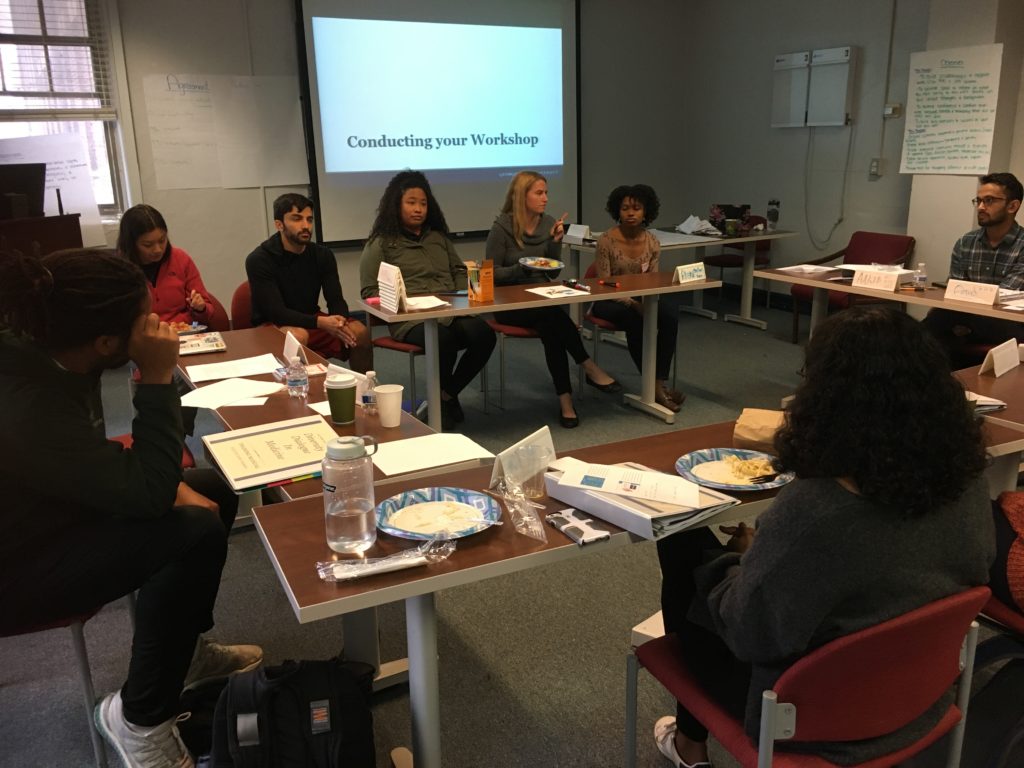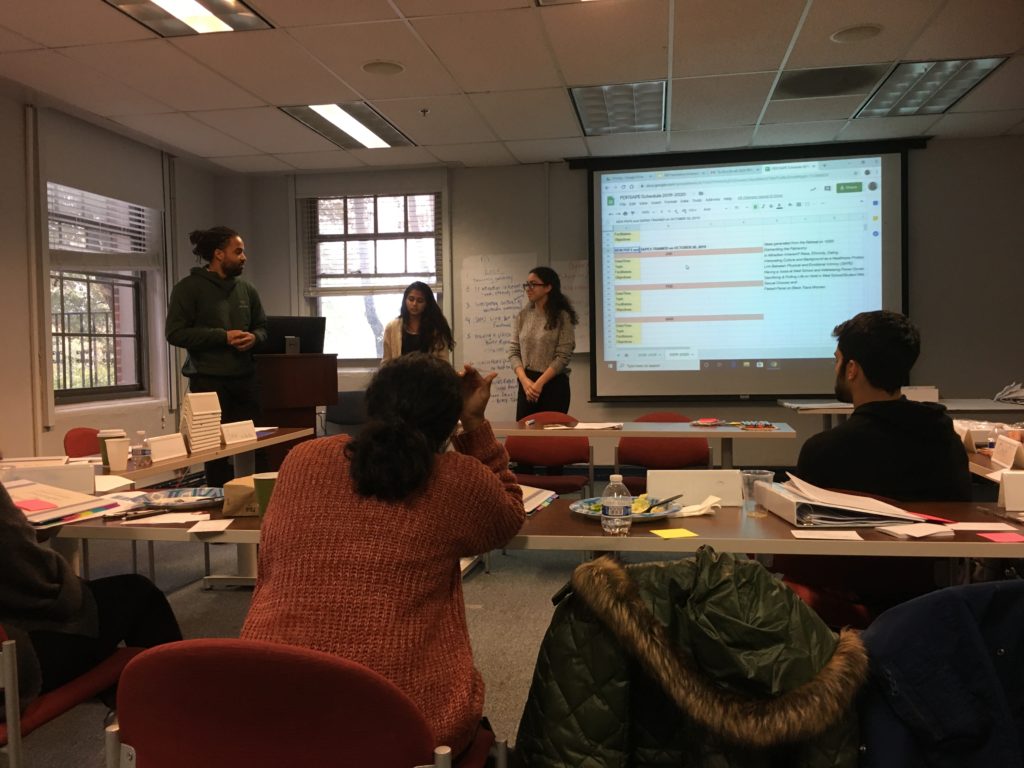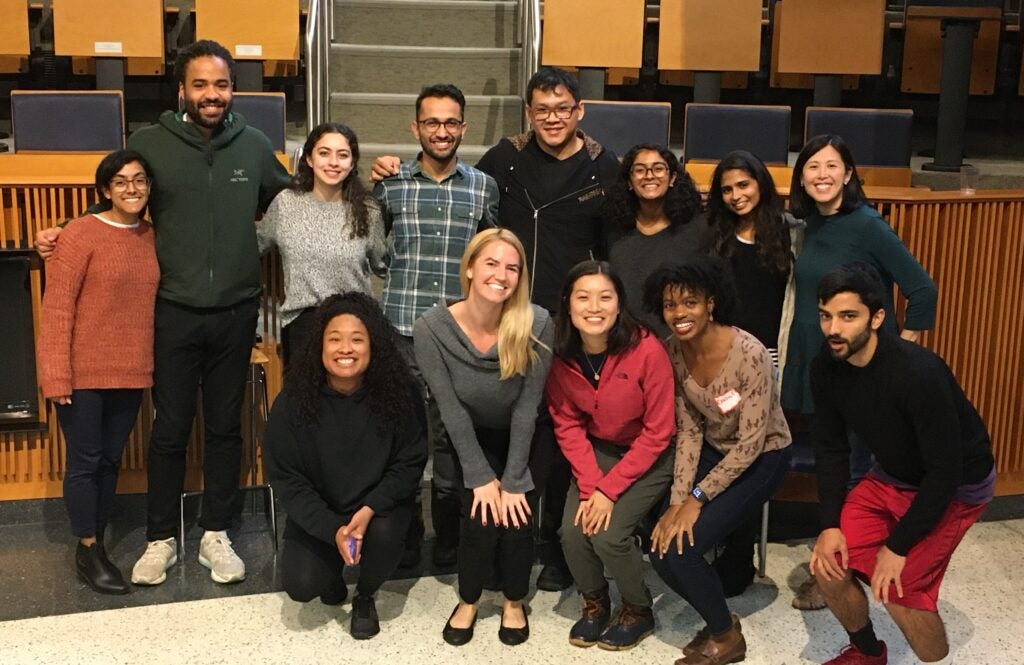Diversity Dialogues in Medicine
Diversity Dialogues in Medicine (DDIM) is a dynamic peer education and community building program at the Georgetown School of Medicine (GUSOM). GUSOM appointed Peer Dialogue Facilitators seek to educate themselves and others about diversity and intersections of identity and intergroup dynamics in order to build common understandings across groups.
Diversity Dialogues is a year-long program during the school year (August-May) that provides a unique learning opportunity for GUMC students to engage on a range of identity topics including but not limited to: race, ethnicity, gender, class, sexuality, and faith. Sponsored by the Office for Diversity & Inclusion at the Georgetown School of Medicine, dialogues are intergroup, gathering people from multiple backgrounds and identities for sustained, ongoing dialogue for 1 – 2 hours per month.



The goal of the Diversity Dialogues in Medicine is to:
- Engage across difference of perspective and identity
- Foster intergroup community through a diversity of identities (doctors, patients, families, teams of healthcare professionals)
- Explore personal experience, societal issues, health care challenges
- Provide tools for navigating difference on and off campus
Questions:
Please contact our office at somdiversityandinclusion@georgetown.edu
